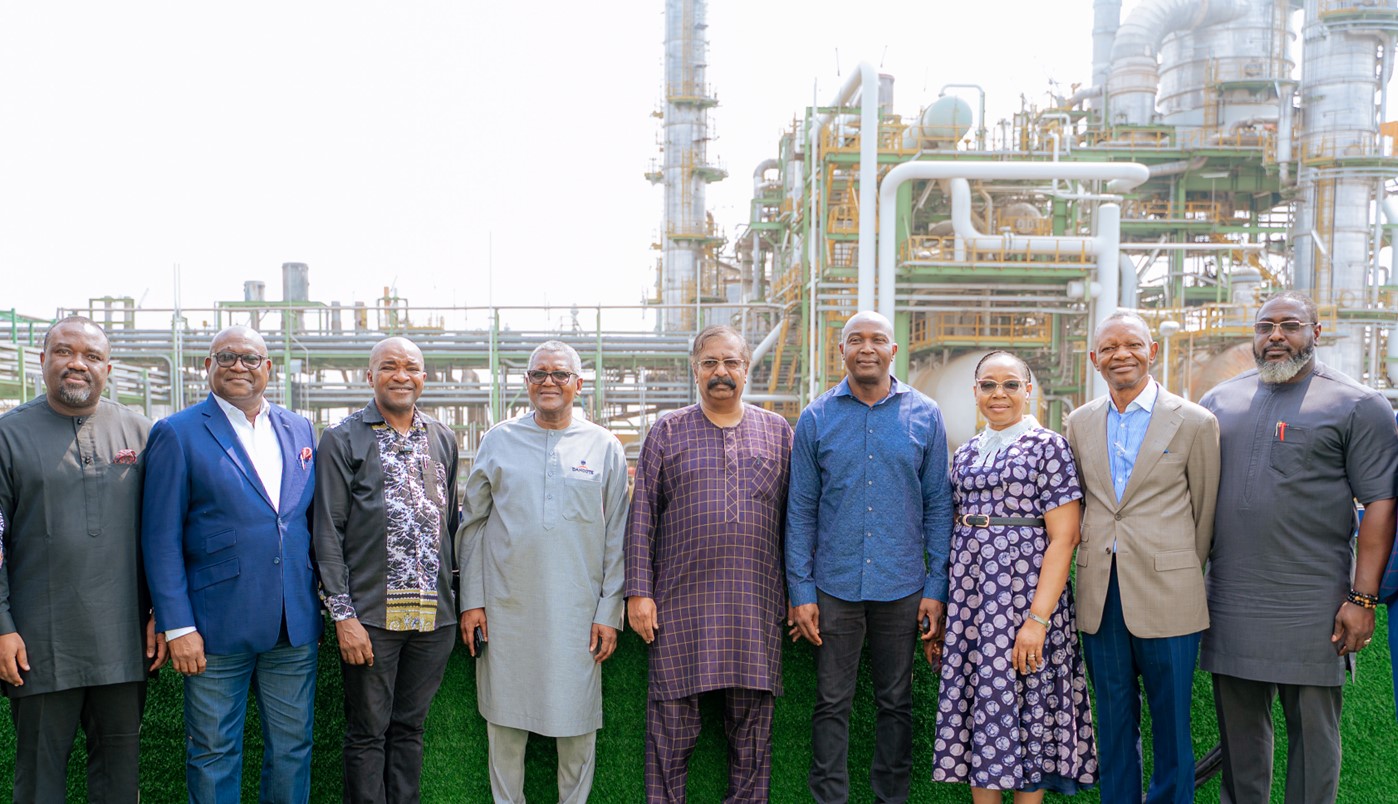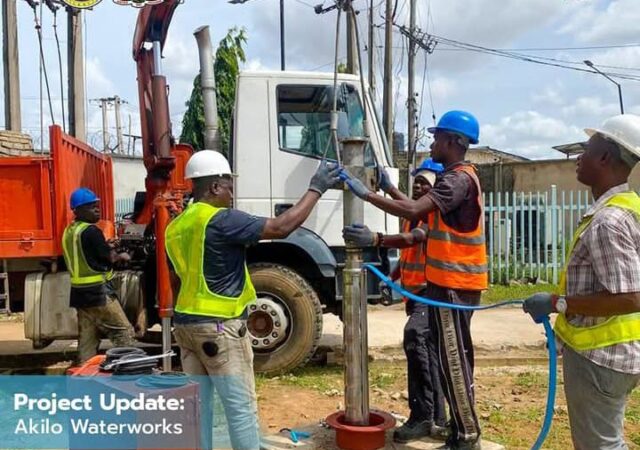The Federal Government has been urged to support local industries in driving economic growth and achieving a $1 trillion economy target for Nigeria.
This call was made by the Nigerian Economic Summit Group (NESG) during a visit to Dangote Fertiliser Limited and the Dangote Petroleum Refinery & Petrochemicals in Ibeju Lekki, Lagos. The visit coincided with a major milestone for the refinery, which successfully exported two cargoes of jet fuel to Saudi Aramco, the world’s largest oil producer.
Commending Aliko Dangote for establishing the $20 billion refinery—the largest single-train refinery in the world—NESG Chairman, Mr. Niyi Yusuf, stressed the need for more high-impact investments to meet Nigeria’s economic aspirations.
“To achieve a $1 trillion economy, domestic investment must be a key driver,” Yusuf stated. “While some dredge land for leisure, you have moved 65 million cubic tonnes of sand to create a future for this country. This refinery, along with the fertiliser plant, petrochemical complex, and supporting infrastructure, is monumental.” He expressed hope that Dangote’s vision would contribute to a stronger Nigeria within his lifetime.
Yusuf highlighted the vital role of local industries in Nigeria’s industrialisation, particularly in supporting Small and Medium Enterprises (SMEs). He reaffirmed NESG’s commitment to advocating for a better investment climate to attract entrepreneurs, boost development, ensure food security, and tackle insecurity.
Lamenting Nigeria’s dependence on foreign imports, Yusuf urged policymakers to prioritise homegrown industries. “It’s alarming that a nation of over 230 million people, with an annual birth rate higher than some countries’ total populations, still relies on imports for basic needs,” he said.
He also lauded Dangote’s bold vision for self-sufficiency in key sectors, acknowledging the refinery’s transformation of Nigeria from a net importer to a net exporter of petroleum products. “This refinery embodies the audacity of courage. You have shown that the private sector can drive real change,” he remarked.
During the visit, NESG board members and stakeholders toured the refinery and fertiliser plants, praising the scale of investment, advanced technology, and the expertise of young Nigerian engineers managing world-class laboratories and control units.
In response, Dangote reiterated the private sector’s role in national development, emphasising that Nigeria’s economic challenges could be addressed by creating jobs and reducing import dependence.
He criticised the misconception that a free market necessitates unchecked imports, noting that even major economies like the U.S. and China actively protect domestic industries. As an example, he pointed to Benin Republic, which restricts cement imports despite its proximity to his Ibese plant.
“The President of Benin is a personal friend, and my plant is just 28km away, yet they refuse to allow imports to protect their local industries,” he noted.
Dangote further highlighted the financial burden of setting up industries in Nigeria due to inadequate infrastructure, forcing investors to fund essential services such as power, roads, and ports—functions typically handled by the government.
Despite these challenges, he noted that the refinery’s advanced technology has positioned it for global exports.
“We are reaching the ambitious goals we set for ourselves,” he announced. “I’m pleased to share that we’ve just sold two cargoes of jet fuel to Saudi Aramco.”
Since commencing operations in 2024, the Dangote refinery has steadily ramped up production, now reaching 550,000 barrels per day.








I think this is one of the most vital information for me. And i’m glad reading your article. But should remark on few general things, The website style is great, the articles is really excellent : D. Good job, cheers
Currently itt seems like Expresssion Enyine iis thhe best blogging patform outt
there righht now. (from wha I’ve read) Is that hat you’re uusing on your blog?
It’s really a great and helpful piece of info. I’m glad that you shared this helpful info with us. Please keep us informed like this. Thank you for sharing.
Thanks , I have just been searching for info about this topic for ages and yours is the best I’ve discovered till now. But, what concerning the conclusion? Are you sure about the source?
Its like you read my mind! You appear to grasp a lot about this, like you wrote the guide in it or something. I feel that you just could do with some to force the message house a bit, but instead of that, this is fantastic blog. A great read. I will certainly be back.
Hiya! I just wish to give an enormous thumbs up for the nice data you’ve here on this post. I will likely be coming again to your blog for extra soon.
This iis my firs timme pay a quiick visit aat here and i
am actually pleassant tto reaqd everthig aat aloone place.